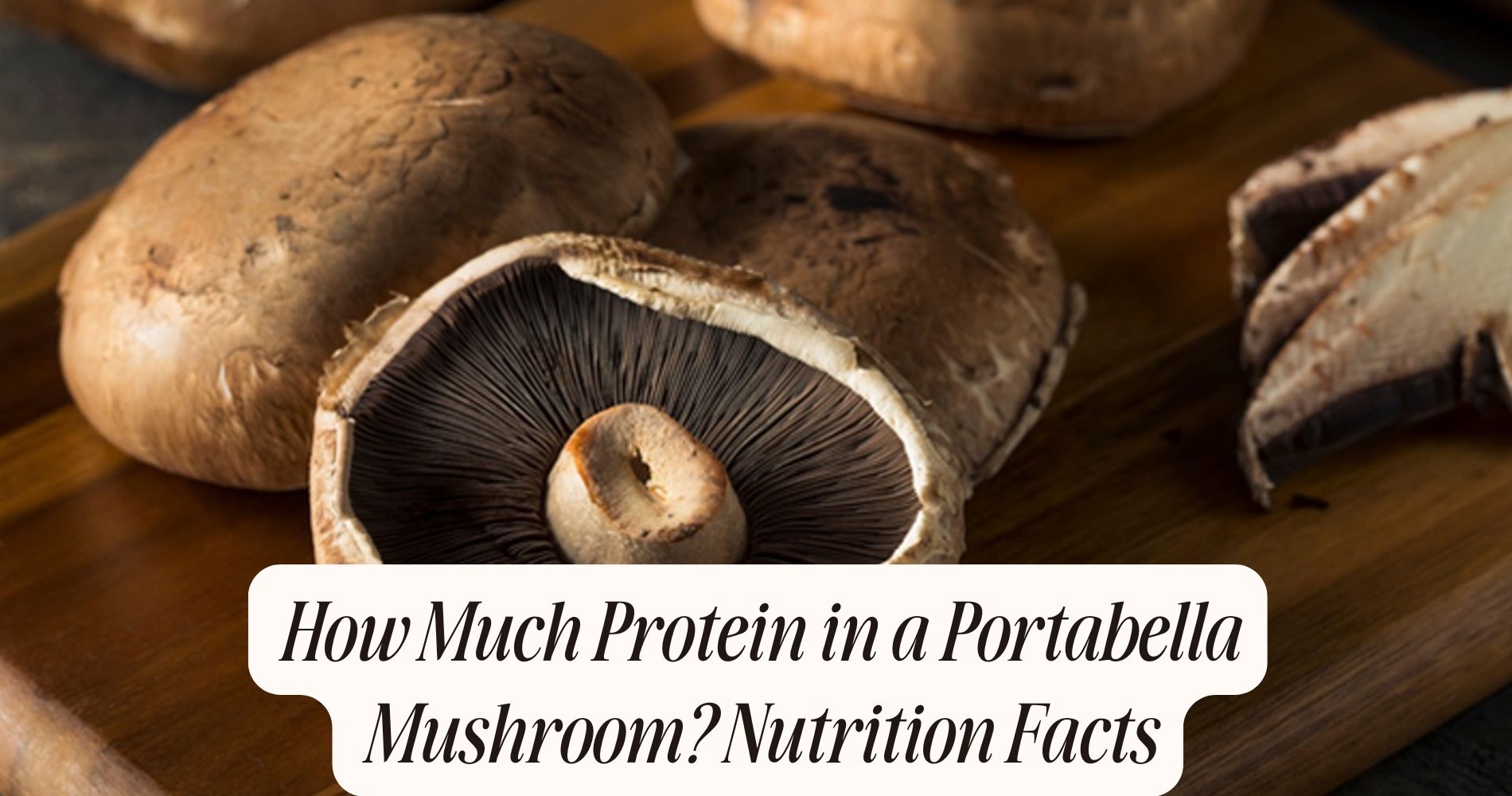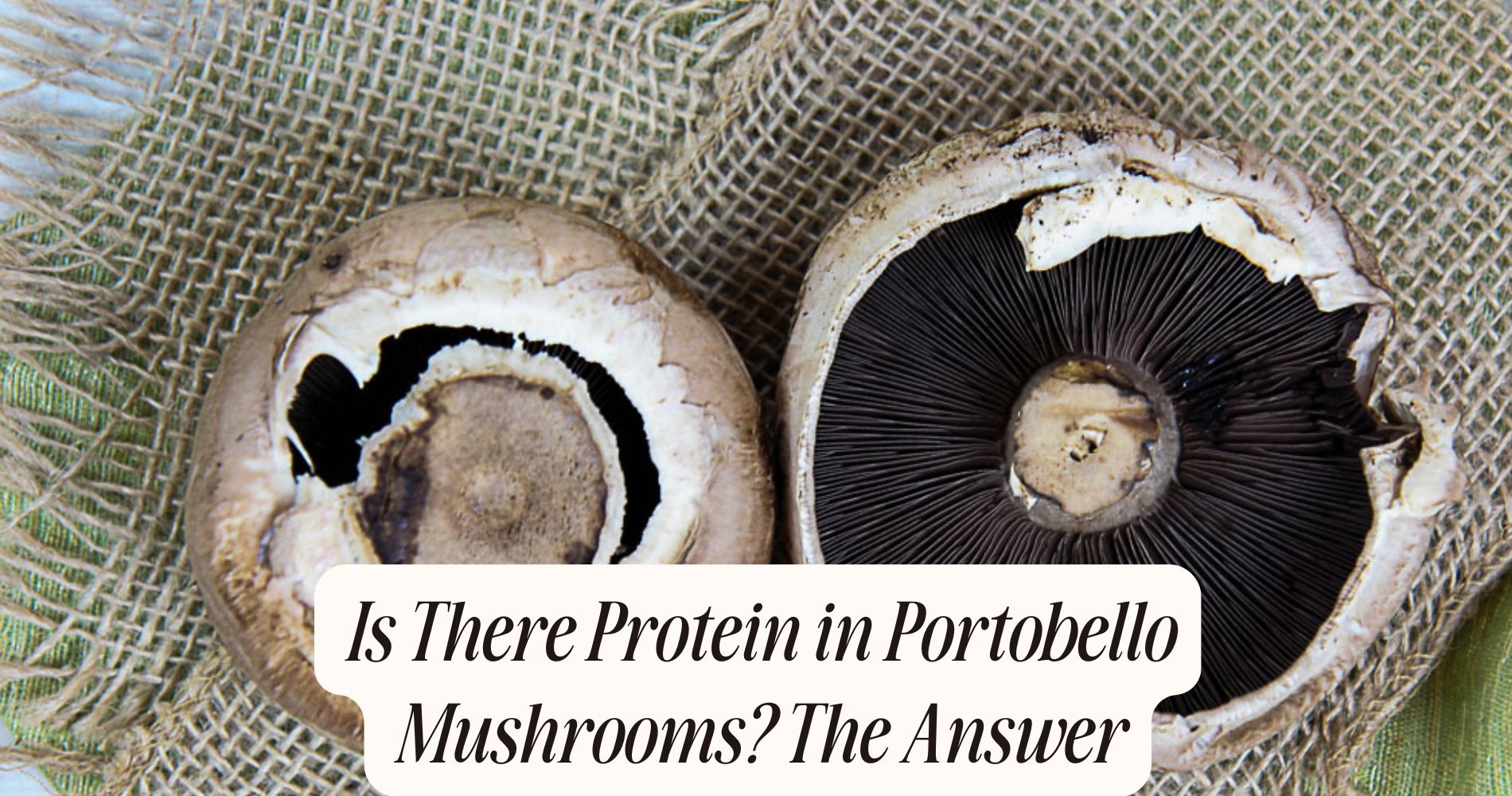
How Much Protein in a Portabella Mushroom? Nutrition Facts
How much protein in a portabella mushroom? Portabella mushrooms provide a moderate 3 grams of protein per 100-gram serving, complementing diverse dietary needs, especially for plant-based diets. Besides protein, they are low in calories and rich in essential nutrients like B vitamins, selenium, and potassium, supporting energy metabolism and antioxidant defense. These mushrooms also offer umami richness, making them an excellent meat substitute. To enhance your meals and explore additional nutritional benefits, there's more to be discovered.
Understanding the Nutritional Profile of Portabella Mushrooms
Portabella mushrooms, often celebrated for their robust flavor and meaty texture, offer a rich nutritional profile that deserves attention. You'll find that their nutrient density is impressive, as they're low in calories yet packed with essential vitamins and minerals like B vitamins, selenium, and potassium.
These nutrients contribute to various bodily functions, including energy metabolism and antioxidant defense, making portabellas a valuable addition to your diet.
In culinary uses, portabella mushrooms shine due to their versatility. You can grill, roast, or sauté them, allowing them to absorb flavors while maintaining their hearty texture.
They're an excellent meat substitute, lending their umami richness to dishes like burgers and stir-fries. Incorporating portabellas into your meals enhances both nutritional intake and culinary diversity.
Protein Content in Portabella Mushrooms
While exploring the nutritional profile of portabella mushrooms, one aspect that stands out is their protein content. Portabella mushrooms provide approximately 3 grams of protein per 100-gram serving.
Although this may seem modest compared to animal-based sources, it complements a variety of dietary needs, especially in plant-based diets. The protein found in portabella mushrooms is easily digestible, aiding in efficient protein absorption.

This makes them a valuable addition to your diet when considering mushroom varieties for their nutritional benefits. When you incorporate portabellas into meals, you're not only enhancing flavor but also boosting your protein intake.
Health Benefits of Including Portabella Mushrooms in Your Diet
When you incorporate portabella mushrooms into your diet, you're not just adding a flavorful ingredient but also reaping numerous health benefits.
These mushrooms are packed with nutrients that contribute to immune support. They're rich in antioxidants like selenium, which help protect your cells from damage and bolster your immune system against infections.
Additionally, portabella mushrooms can play an important role in weight management. They're low in calories but high in fiber, promoting a feeling of fullness that can help control your appetite and reduce overall calorie intake. The fiber content also supports healthy digestion.
Comparing Protein in Portabella Mushrooms to Other Plant-Based Sources
Among plant-based protein sources, portabella mushrooms stand out for their unique nutritional profile. While portabella mushrooms offer about 2 grams of protein per 100 grams, they're not as protein-dense as legumes or seeds. However, their low-calorie content makes them an excellent addition to a balanced diet.
When you compare plant protein sources like lentils, which provide nearly 9 grams of protein per 100 grams, you'll notice that mushrooms offer a different set of benefits. They're rich in antioxidants and low in fat.

This mushroom protein source complements other plant proteins, contributing to a diverse nutrient intake. While portabella mushrooms mightn't replace high-protein legumes, they provide valuable nutrition when combined with other protein-rich foods.
Ways to Incorporate Portabella Mushrooms Into Your Meals
Incorporating portabella mushrooms into your meals can enhance both flavor and nutritional value. They're versatile, offering numerous culinary possibilities.
For a protein-rich option, try making stuffed mushrooms. Fill the caps with ingredients like quinoa, spinach, and feta, providing a savory and nutrient-dense dish. This method not only boosts protein intake but also adds essential vitamins and minerals.
Alternatively, consider mushroom burgers as a hearty, plant-based alternative to traditional meat patties. Grilling or broiling portabella caps brings out their umami flavor, while their meaty texture satisfies even the most ardent burger enthusiasts.
Portabella mushrooms are low in calories and high in fiber, making them an excellent choice for health-conscious meals. By incorporating them, you're enhancing your diet's nutritional profile.
Tips for Selecting and Storing Portabella Mushrooms
Selecting and storing portabella mushrooms properly can greatly affect their flavor and shelf life. To guarantee a fresh selection, look for mushrooms with firm, smooth caps and a uniform brown color. Avoid those with dark spots or a slimy texture, as these indicate spoilage. The gills should be visible but not too exposed, indicating maturity without being overly aged.

For proper storage, keep the mushrooms in a paper bag or wrapped in a paper towel, then place them in the refrigerator. This method allows them to breathe and prevents excess moisture buildup, which can cause spoilage.
Avoid storing them in airtight containers, as this can trap moisture and accelerate deterioration. Consume them within a week for best freshness and taste.
Get the Power of 10 Mushrooms in One Tasty Gummy
While portabella mushrooms offer valuable nutrients, you can enjoy the benefits of 10 functional mushrooms in one convenient chew with Well Gummies 10-IN-1 Mushroom Gummies. These vegan gummies support brain function, energy, and immune health, giving your body the fuel it needs—without the hassle of meal prep. Plus, with a fresh wild berry flavor, they taste just like candy, providing calmer energy with no jitters or crash. Get the best of mushrooms in a delicious, easy-to-use gummy and power up your wellness routine!
Frequently Asked Questions
Are Portabella Mushrooms Safe for Individuals With Mushroom Allergies?
If you have mushroom allergies, consuming portabella mushrooms isn't safe. Symptoms may include itching, swelling, or difficulty breathing. Check with a healthcare professional for a detailed analysis of your allergy symptoms and potential risks.
Can Portabella Mushrooms Be Consumed Raw Safely?
You can consume portabella mushrooms raw, but safety concerns exist due to potential toxins like agaritine. Cooking reduces these risks. While occasional raw consumption is generally safe, it's wise to limit intake and opt for cooked mushrooms.
Do Portabella Mushrooms Contain Any Vitamin D?
Yes, portabella mushrooms are vitamin D sources. When exposed to sunlight, they produce vitamin D2, enhancing their mushroom health benefits. Consuming them can help meet your vitamin D needs, supporting bone health and immune function.
How Do Portabella Mushrooms Affect Digestion?
Portabella mushrooms positively impact digestion due to their fiber content. This high fiber aids in regular bowel movements and supports gut health. Including portabellas in your diet provides digestive benefits, contributing to overall gastrointestinal well-being.
Are There Any Common Substitutes for Portabella Mushrooms in Recipes?
You can substitute shiitake or button mushrooms for portabella mushrooms in recipes. Shiitakes offer a robust flavor, while buttons are milder. Both provide a similar texture, making them suitable alternatives depending on the dish's flavor profile.
Conclusion
Incorporating portabella mushrooms into your diet offers a nutritious boost, with approximately 3 grams of protein per cup. While they don't provide as much protein as some other plant-based sources, their rich nutrient profile, including fiber and antioxidants, contributes to overall health. To maximize benefits, select firm, blemish-free mushrooms and store them in a paper bag in the refrigerator. By creatively adding them to your meals, you can enhance flavor and nutrition simultaneously.




